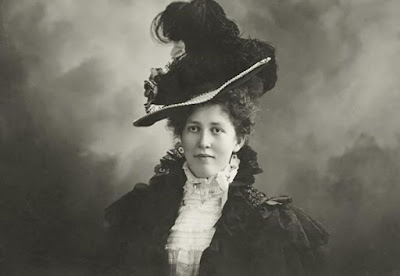But by the time I worked for the U.S. Forest Service in the 70s and 80s, women maintained a clear majority among seasonal fire lookouts in national forests.
Just three years after the Forest Service had created the job, Hallie Morse Daggett (above) became the first female to serve as a Forest Service fire lookout, blazing a trail for "many lookouts." In her first year on the job, she reportedly spotted 40 fires, with only five acres burned.
In a year that many have struggled with feeling isolated at home, living in a small, exposed cabin thousands of feet above the wilderness in remote locations might not exactly sound like a good time. It's definitely not for wimps. The job can be grueling, lonely and at times, incredibly stressful.Having spent time as a lookout myself, I understand why some sought the position as a way of life. My only lookout assignment was on Antelope Mountain on the Prairie City Ranger District on Malheur National Forest. The gig was short-lived; I spent most of my time as a wilderness ranger.The majority of lookouts, however, were staffed by women. Many were college students. Most were also artists, musicians and writers, who practiced in their downtime. One friend, a lookout on Dixie Butte, was skilled at weaving and had her loom packed to the site to work on her various projects.
Training consists of fire prevention, and lookouts are shown how to use an Osborne rangefinder. They are instructed on radio code and how to maintain the tower, and then sent on their way. It's not the type of position that requires others to motivate. As a lookout, you're basically on your own.
At times the job can be harrowing, especially during a lightning bust when lookout towers are particularly vulnerable. Lookouts are particularly valuable during lighting storms because airplanes cannot fly in a lightning storm, so the job still serves a vital function.
Imagine this scenario. Storm rolls in, rain pelts the tower horizontally, lightning flashes, thunder booms, and you're hunkered on a stool with glass feet to avoid electrocution should lightning strike the building. A frighteningly difficult situation that is not for the faint of heart.











No comments:
Post a Comment